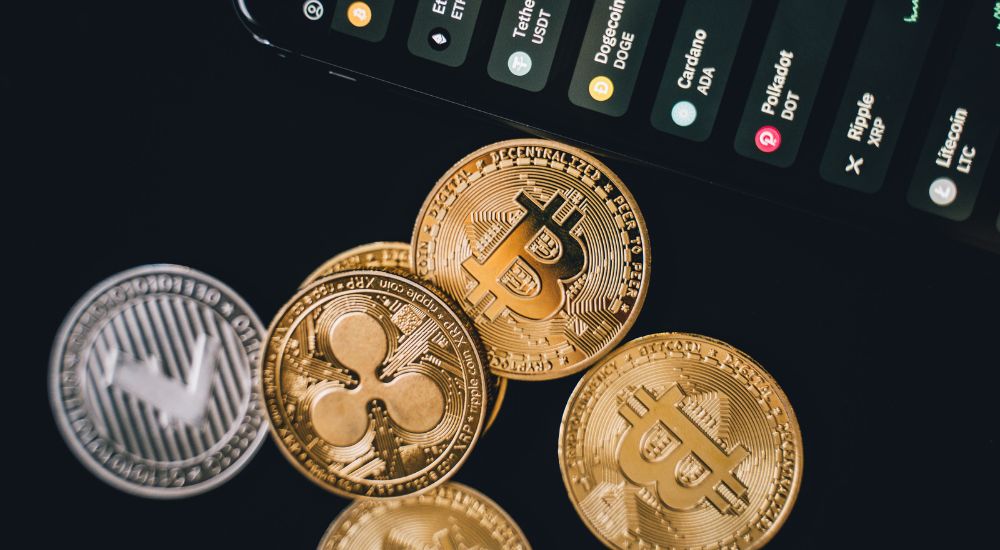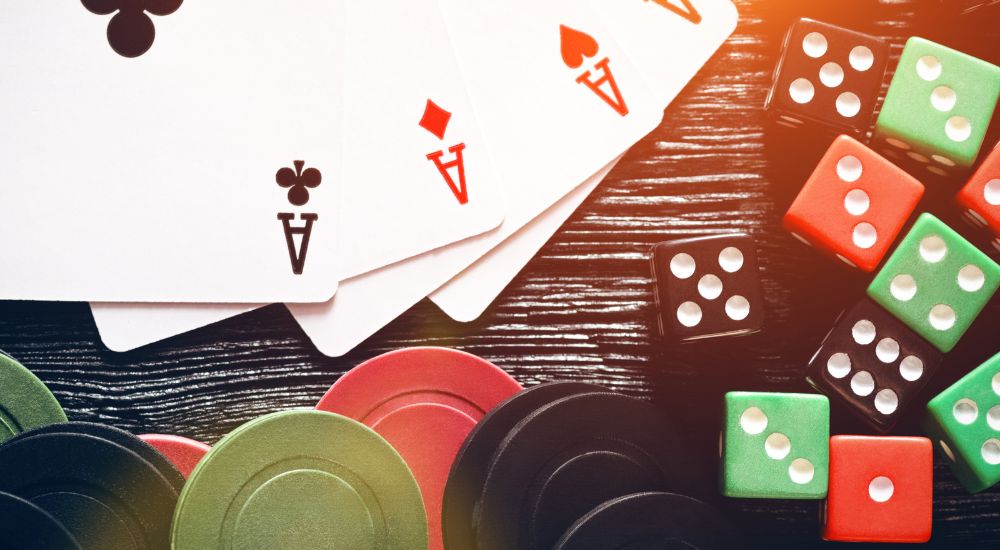How do NFT games work, after all? When crypto coins like Bitcoin (2009) and Litecoin (2011) first appeared, many called them a fad, something that would never take off and have real application in our world. Collectively, crypto coins have a market cap surpassing $1 trillion (that’s the number 1 followed by 12 zeroes) as of this post.
NFT games are currently facing the same dilemma: despite their $9.3 billion market cap, will they make it or will they break?
Love them or hate them, NFT games are probably here to stay, and some people are already taking advantage of their sizable potential gains: following the 2020 pandemic, many Filipinos are making ends meet through those games, and many people across the globe have made a fortune by playing them.
As such, NFT games are an efficient and easy way for the average person to get into the world of cryptocurrencies and potentially earn some money in the process. Who knows?
In this post, we will answer the most frequently asked questions about NFT games: what are they, how do NFT games work, and much more. Without further ado, let’s get straight to the quintessential question.
Read also: 8 awesome upcoming NFT games for you to enjoy
What exactly are NFTs?
“NFT” stands for “Non-Fungible Token”. In short, they are assets stored on a blockchain with identification codes and metadata that are unique to them, allowing NFTs to be distinguished from each other and making them unable to be replicated, which is just a fancy way of saying no two things are equal.
However, NFTs cannot be traded or exchanged at equivalency like usual cryptocurrencies (Bitcoin and Litecoin to name a few) because the latter’s tokens are fungible – in other words, they are identical in value, shape, and form to each other.
We can agree that 1 Bitcoin (BTC) is always equal to another Bitcoin, right? It’s this trait – fungibility – that makes cryptocurrencies viable and secure for commercial transactions.

When it comes to creating (minting) NFTs, it’s possible to tokenize pretty much everything – from real estate properties and company shares to real-world collectibles and digital artwork – which made NFTs steal the spotlight recently, fueling numerous controversies about digital ownership of real-world items, copyright issues, and energy consumption in the process.
In any case, their media repercussion and popularity would eventually make space for NFT games to be created.
What are NFT games?
NFT games share a lot in common with their normal counterparts. All their design and development processes, mechanics, assets, and quirks are made pretty much the same way.
Players can get items and in-game currencies while playing a game – be it by completing tasks, beating bosses, or reaching a certain level – but the rewards are self-contained within a game. But when it comes to NFT games, those rewards can actually be transferred to another game or exchanged with any other player, making them fundamentally different from most games as they usually ban real money trading (RMT).
Thanks to this characteristic, NFT games can be a lot more than the daily dose of fun and social interactions: it’s possible to profit from them!
How do NFT games work?
In NFT games, pretty much anything can be tokenized. Let’s say, for example, that you’re playing a game that gives you NFT cats as a reward. Since each token has always one owner at any given time, you essentially own the cat NFT, which is unique across all the game’s blockchains.
With ownership, you can decide what to do with it: will you keep your NFT cat in your collection, or will you trade it for other NFTs? Maybe exchanging it for cryptocoins could be a better idea? What about breeding two cat NFTs to create a third one with inherited traits?
The role of smart contracts in NFT games
And you might ask: how are those non-fungible tokens minted (created)? Developers make something called a “smart contract”, a self-executing piece of code that makes up the rules for the generation of an NFT. When a token is minted, the creator is also assigned as the owner by a smart contract, with its unique token ID and metadata acting as proof of ownership.
Creators could use smart contracts to reward the top-performing players with special-edition NFTs, which could be valuable given their scarcity and uniqueness. It’s also possible for someone to design an NFT series that resembles actual pets: if you don’t care for it, it will die – and everything is controlled by smart contracts.
All in all, smart contracts are versatile, making appearances everywhere in NFT games. And, to the surprise of no one, those things are stored in a blockchain.
How do NFT game owners make money?
Traditional games rely on a wide variety of monetization methods to generate income, which may include: selling the game, using a subscription model, battle passes, in-game microtransactions, in-game purchases, ads, and data monetization to name a few.
NFT games, however, can rely on three other aspects:
- Before players can play an NFT game, they are usually required to buy some NFTs of their own;
- Game developers can add special in-game NFTs to the marketplace, generating some income directly;
- Last, but not least: they charge fees for all transactions made on the platform.
How can players make money with NFT games?
Once they have collected some NFTs, they are able to withdraw them to their wallet. As the vast majority of NFTs make use of the Ethereum blockchain, getting a compatible wallet such as Metamask is highly recommended.
Some games, however, offer additional options to convert their NFTs into real money:
- In-game marketplace: players can put their NFTs up for sale in an official marketplace;
- Third-party platforms, such as Binance: players can create auctions and sales in a wide variety of crypto coins;
- Cashing out cryptocurrency rewards: some games allow players to convert their in-game tokens for another cryptocurrency, which can be further traded for traditional currencies.
Can players lose money playing NFT games?
Absolutely!
Whenever people play NFT games, they receive in-game NFTs and tokens for the game’s brand (for example AXS by “Axie Infinity”, one of the leading mobile NFT games), which is usually powered by the Ethereum blockchain.
As the exchange rate can vary wildly depending on the demand of either coin and external factors, it’s possible for a player holding NFTs or brand tokens to lose money.
With new technologies, there are also new scams. For this reason, players must know how to safeguard themselves against digital scams and mistakes, which can lead to the loss of precious NFTs. To prevent yourself from becoming a victim, make sure to choose trustworthy platforms and give their safety guides a thorough read.
Read as well: A detailed overview of blockchain game development

What kind of NFT games are there?
Like traditional games, there is a wide variety of NFT games for you to choose from. Chances are there is an NFT game that’s perfect for you! To name a few, there are action, RPG, sports, casino/gambling, strategy, PvP, and racing NFT games.
Popular game mechanics you will find in those games are resource collection (be it through quests or good old grinding), breeding new creatures (like in Axie Infinity and CryptoKitties, which are very popular games), farming (with digital lands that can be NFTs themselves), PvPing and crafting (which allows players to mint their own crafted items as NFTs).
Are you ready to create your own NFT game?
After reading this post, you should have a deeper grasp of what NFT games entail and how NFTs as a whole work.
If you’re interested in making your own NFT game, then make sure to work with seasoned professionals, as they are the best way to ensure you will have a high-quality game in your hands. Having well-polished visuals and interesting, easy-to-learn but hard-to-master mechanics are the best ways to attract players to your game – and we can do that for you.
We are Main Leaf, a game development studio that has been in the market since 2010. With our staff made up of 70+ talented professionals, we create fantastic games on demand – and the next one could be yours!
If you are interested, make sure to request a game quote today by going to the top of this page. We will contact you back within 24 hours!

